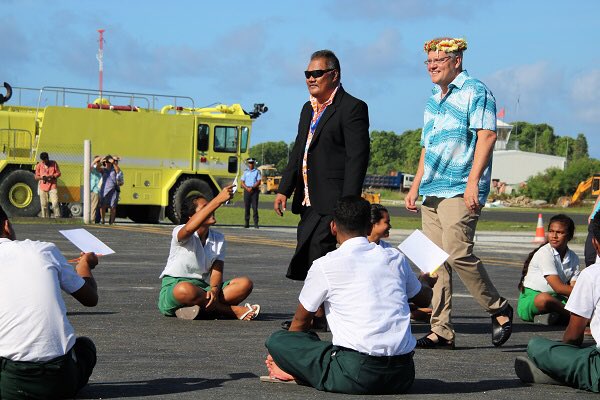 Print This Post
Print This Post- The Strategist - https://www.aspistrategist.org.au -
Happy fourth birthday, Pacific step-up
Posted By Graeme Dobell on September 7, 2020 @ 06:00

Article printed from The Strategist: https://www.aspistrategist.org.au
URL to article: https://www.aspistrategist.org.au/happy-fourth-birthday-pacific-step-up/
[1] South Pacific ‘step-up’: https://www.dfat.gov.au/geo/pacific/engagement/Pages/stepping-up-australias-pacific-engagement
[2] challenges: https://www.aspistrategist.org.au/china-challenges-australia-in-the-south-pacific/
[3] ‘step-change’: https://pmtranscripts.pmc.gov.au/release/transcript-40440
[4] joined : https://www.aspistrategist.org.au/kangaroo-step-up-and-kiwi-reset-in-the-south-pacific/
[5] ‘reset’: https://www.lowyinstitute.org/publications/winston-peters-new-zealand-pacific
[6] needs: https://www.aspistrategist.org.au/four-south-pacific-futures/
[7] interests: https://www.aspistrategist.org.au/six-inquiries-on-australias-south-pacific-step-up/
[8] memoir: https://www.hardiegrant.com/au/publishing/bookfinder/book/a-bigger-picture-by-malcolm-turnbull/9781743795637
[9] 2017 foreign affairs white paper: https://www.fpwhitepaper.gov.au/
[10] irreversible and permanent: https://pmtranscripts.pmc.gov.au/release/transcript-41344
[11] in a speech: https://www.pm.gov.au/media/address-australia-and-pacific-new-chapter
[12] goddamn genius: https://www.aspistrategist.org.au/morrisons-forrest-gump-moment/
[13] Mary-Louise O’Callaghan: https://www.lowyinstitute.org/the-interpreter/stepping-out-and-hot-mess-pacific
[14] new: https://pmtranscripts.pmc.gov.au/release/transcript-15799
[15] cooperation: https://pmtranscripts.pmc.gov.au/release/transcript-16079
[16] Port Moresby declaration: https://pmtranscripts.pmc.gov.au/release/transcript-15802
[17] partnerships: https://pmtranscripts.pmc.gov.au/release/transcript-15804
[18] development: https://www.dfat.gov.au/geo/pacific/development-assistance/partnerships/Pages/default
[19] China panic: https://www.aspistrategist.org.au/the-evolution-of-australias-china-challenge/
[20] Office of the Pacific: https://www.dfat.gov.au/geo/pacific/Pages/office-of-the-pacific
[21] $2 billion: https://www.dfat.gov.au/geo/pacific/development-assistance/Pages/australian-infrastructure-financing-facility-for-the-pacific
[22] defence strategic update: https://www.defence.gov.au/StrategicUpdate-2020/docs/2020_Defence_Strategic_Update.pdf
[23] same number: https://www.aspistrategist.org.au/australias-strategic-update-by-the-numbers/
[24] ‘opened the door’: https://www.theguardian.com/australia-news/2019/nov/26/kevin-rudd-lashes-coalition-over-increasingly-strained-relationship-with-china
[25] ‘dramatic contraction’: https://www.lowyinstitute.org/publications/submission-department-foreign-affairs-and-trade-review-australia-s-development-program
[26] ‘incoherent’: https://devpolicy.org/incoherent-aid-budget-20190403/
[27] ‘unprecedented divergence’: https://devpolicy.org/defence-and-aid-unprecedented-divergence-20200728/
[28] Christopher Pyne: https://www.hachette.com.au/christopher-pyne/the-insider-the-scoops-the-scandals-and-the-serious-business-within-the-canberra-bubble